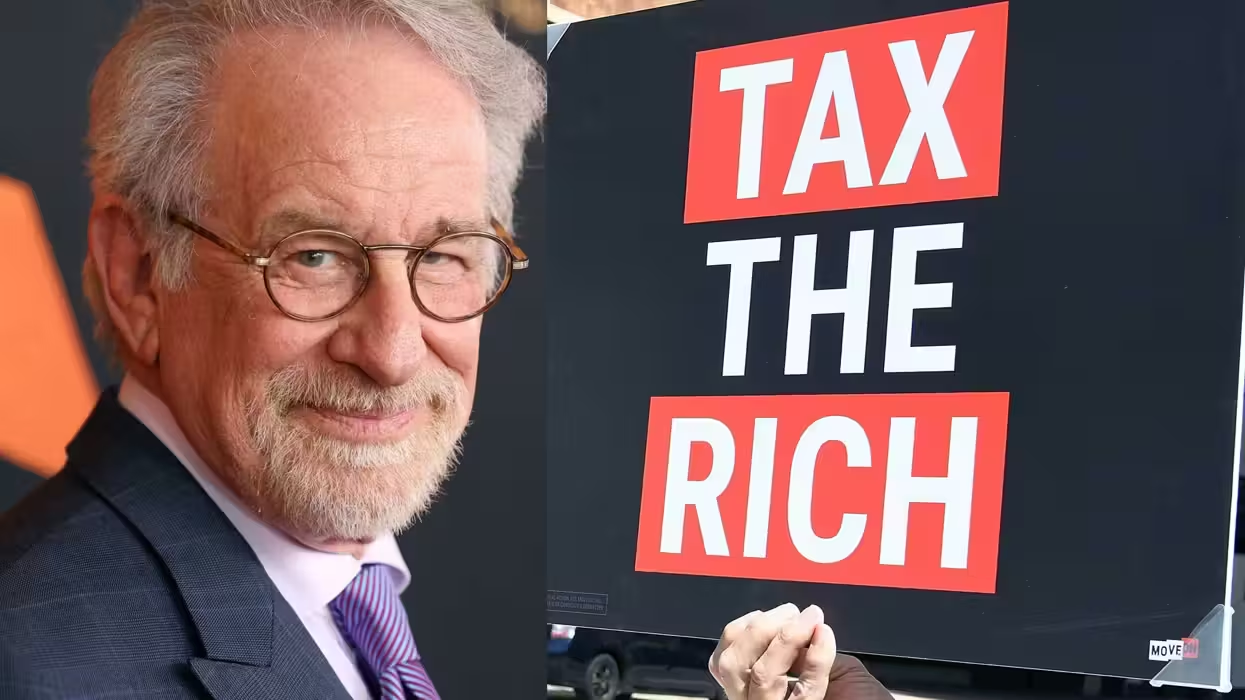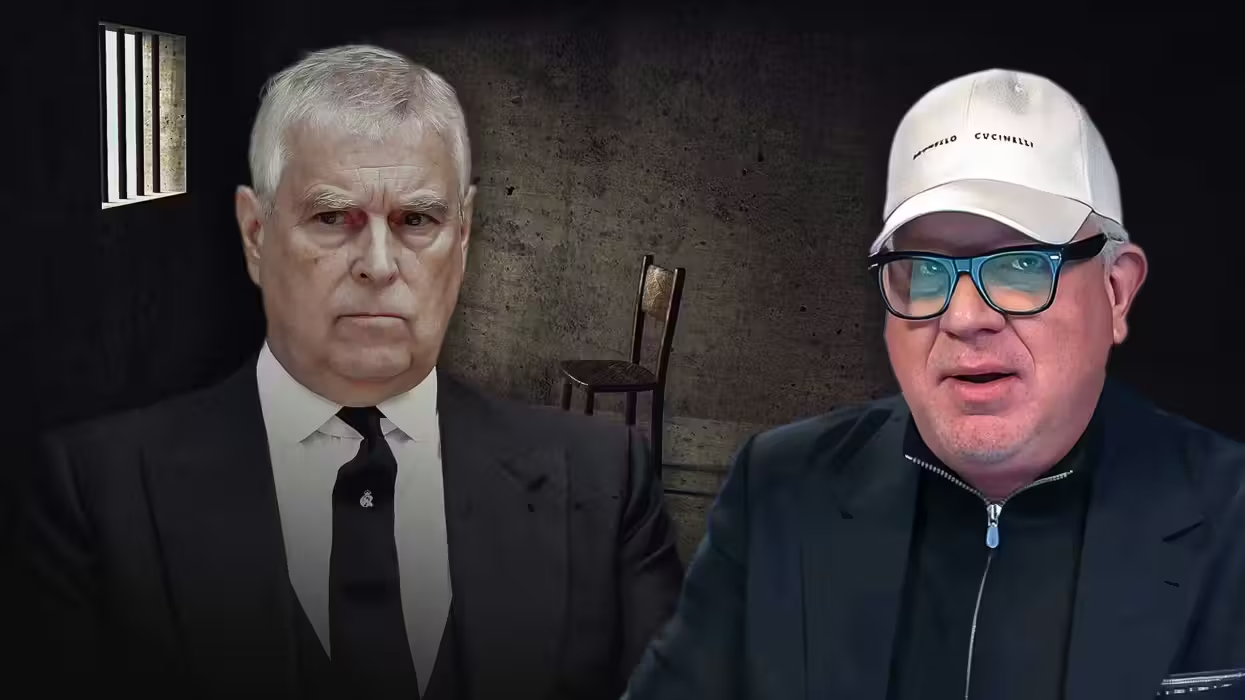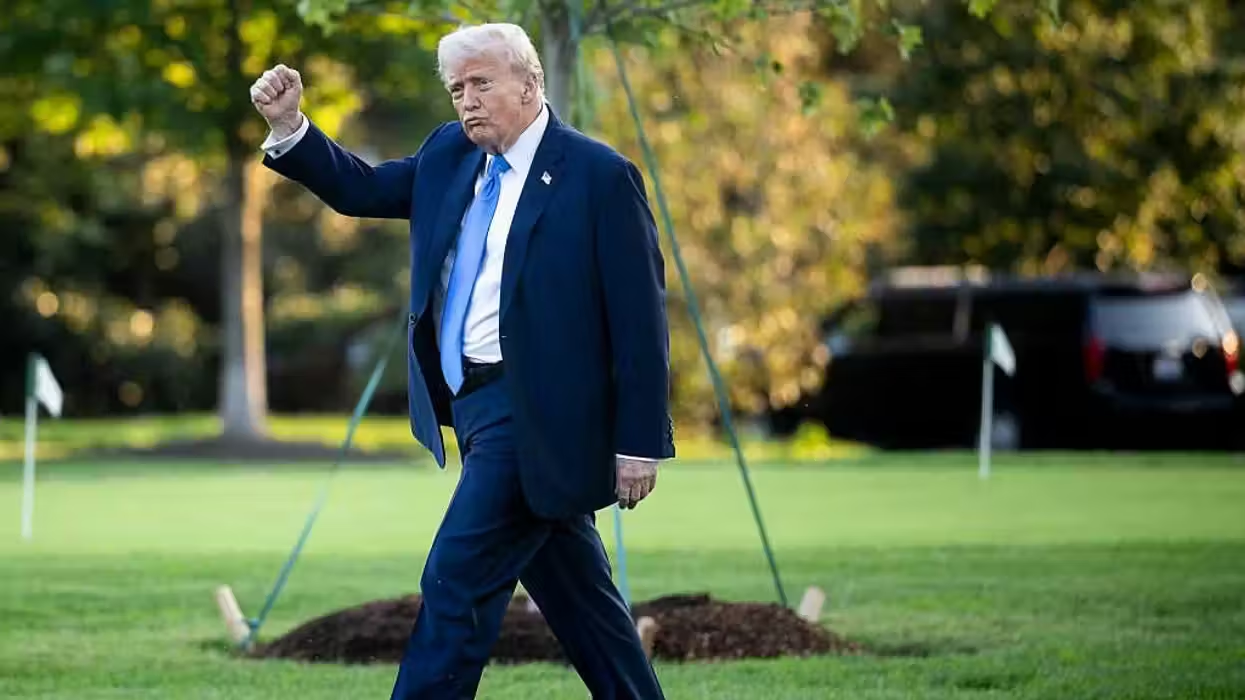
© 2026 Blaze Media LLC. All rights reserved.
Is Capitalism Heartless? President of the Ayn Rand Institute Talks Economic Policy (And How to Fix the Economy) With TheBlaze
November 01, 2012
Dr. Yaron Brook, the president and executive director of the Ayn Rand Institute, stopped by TheBlaze newsroom recently for a lively interview with contributor Mallory Factor. With the recent release of Atlas Shrugged II and the presidential election right around the corner, many of the theories and philosophies Brook advocates are at the center of politics today.
After noting that Brook has a new book out-- Free Market Revolution: How Ayn Rand's Ideas Can End Big Government-- the two delved right into the issues.
"What about protecting all those people who need to be protected?" Factor asked, bringing up a common critique of what some call "unbridled" capitalism. "Don't we have moral obligations to people?"
"No, we don't," he said simply. "Somebody else's needs, somebody else's suffering, somebody else's desires are not your responsibility."
When asked if he would help someone if they got hit by a car, Brook explained: "As a human being you want to help them, absolutely, but it depends on the cost! If it's in the middle of a highway and you might get run over going to help them, you're probably not going to do it...So it depends on the cost to you. The standard is your life."
Reiterating that charity is good but that it should be your choice, Brook directly tackled the notion that capitalism is heartless and will leave the poor helpless:
"Under capitalism, the poor are the biggest beneficiaries! No other system in history has benefited the poor more than capitalism...Capitalism is moral because it allows you the freedom to pursue your happiness, it allows you the freedom to take care of your life...So what happens under capitalism? The poor go out there and they get a job...under capitalism, the standard of living of the poor rises dramatically. So the poor under capitalism are a lot less poor than the middle class in any other system. Capitalism is what created the middle class-- not by lowering the wealth of the rich, but by increasing the wealth of the poor." [Emphasis added]
From there, the two switched to presidential politics. When asked why he isn't supporting Libertarian nominee Gary Johnson, Brook opted for the "realistic" approach that only Mitt Romney or Barack Obama have a chance of winning, but said that Johnson "absolutely" has better ideas than Romney on domestic policy.
"Congresman Ryan...was a fan of Ayn Rand until he became the vice presidential candidate, now he's running as fast as he can away from it. Why?" Factor asked.
According to Brook, it's a little too early for Rand's "radical" ideas in American politics. "[We're] not for a little bit of free market, not for a little bit of slowing the rate of government," he explained. "We're for slashing government."
But that's not all. Brook also thinks Rand's atheism could alienate religious voters, adding that we're far more religious today than we were in 1776:
"We're a much more religious nation today than I think we were at the founding, when a deist like Thomas Jefferson could get elected...[Ryan] has to run from [Rand's] atheism, he has to establish his Catholic roots, and he has to articulate a defense of the entitlement state because America's not ready yet for a free-market revolution."
When asked what advice he would give to America's leaders, Brook began with "deregulate, deregulate, deregulate" before proposing a novel way to get spending cuts through Congress:
"Start cutting spending by cutting all government subsidies to business...All farm subsidies, all energy subsidies, get rid of all tax deductions, all of them...Republicans are always described as 'the party of big business,' and they hate the poor. Well, don't start with the poor. Start with big business this time, and you could cut close to half a trillion dollars off the U.S. budget not in ten years-- today-- if you just got rid of all the stuff that only hurts business in the long term." [Emphasis added]
Citing several specific examples of what he would cut, Brook concluded: "This is not hard. Let's start the process by deregulating and significantly cutting subsidies...Let's get rid of cronyism, and the way to get rid of cronyism is to get government out of the business of business."
Watch the entire interview, below:
Want to leave a tip?
We answer to you. Help keep our content free of advertisers and big tech censorship by leaving a tip today.
Want to join the conversation?
Already a subscriber?
more stories
Sign up for the Blaze newsletter
By signing up, you agree to our Privacy Policy and Terms of Use, and agree to receive content that may sometimes include advertisements. You may opt out at any time.
Related Content
© 2026 Blaze Media LLC. All rights reserved.
Get the stories that matter most delivered directly to your inbox.
By signing up, you agree to our Privacy Policy and Terms of Use, and agree to receive content that may sometimes include advertisements. You may opt out at any time.






